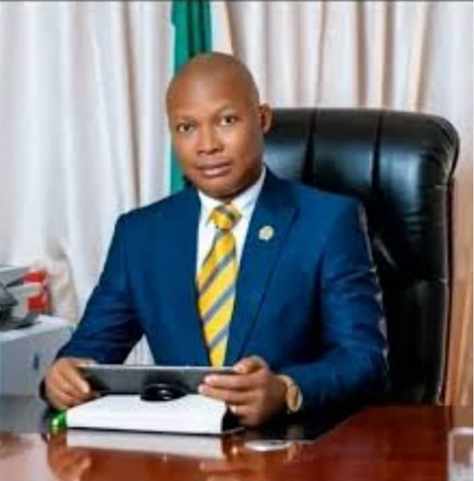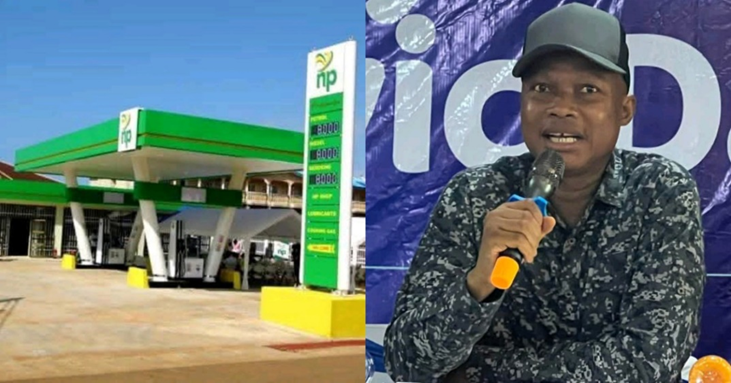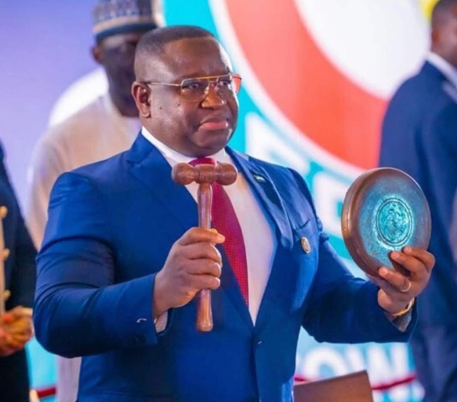By Mackie M. Jalloh
In the heart of Sierra Leone’s petroleum regulatory system, a quiet yet determined resilience is growing stronger with each passing day. At the National Petroleum Regulatory Authority (NPRA), an institution once plagued by inefficiencies, a silent yet fervent prayer now reverberates among its leadership and staff: “No weapon formed against our leadership shall prosper.” This mantra has taken on new urgency as a coordinated campaign of misinformation and public attacks threatens to derail the reputation of the authority and its Director General, Brima Baluwa Koroma.
Since his appointment in 2024, Koroma has led a wide-ranging transformation of Sierra Leone’s downstream petroleum sector. In a country historically affected by fuel shortages, opaque pricing structures, and weak regulatory oversight, his tenure has brought measurable progress. From expanding the country’s fuel storage capacity by 300%—enough to ensure a three-month supply without imports—to strengthening oversight mechanisms and streamlining operational inefficiencies, Koroma has earned both national and international recognition.
However, these strides have not come without resistance. According to multiple insiders and civil society advocates, a wave of calculated attacks has been launched against the NPRA’s leadership, allegedly driven by disgruntled internal actors and external critics who feel threatened by the institution’s reform trajectory. What some are now calling a “Judas coalition” has reportedly begun working in tandem with elements of civil society to discredit Koroma and question the integrity of the institution he leads.
At the center of this unfolding controversy is activist Edmond Abu, who recently made a series of public allegations targeting the NPRA and its Director General. But rather than gain traction, his claims sparked backlash from a wide coalition of civil society organizations, particularly the Civil Society Consortium on Petroleum. On July 22, 2025, the consortium convened a press conference to denounce what they characterized as a “baseless and malicious smear campaign” rooted in personal grievances rather than factual evidence.
Moses Sellu Mambu, a respected figure in Sierra Leone’s civil society space and a senior member of the consortium, openly defended Koroma’s leadership. “This is a man who understands the complexities of this sector,” Mambu said. “He’s not new to petroleum regulation. He rose through the ranks and has firsthand knowledge of the challenges we face and the solutions we need.”
Mambu noted that many of the sector’s previous setbacks—chronic fuel shortages, illicit dealings by oil marketing companies (OMCs), and weak enforcement of regulations—have significantly declined under Koroma’s leadership. He cited the director general’s emphasis on institutional transparency, public communication, and strict compliance with international pricing benchmarks as critical to the NPRA’s recent success.
The press conference also saw strong contributions from William Sao Lamin, another civil society representative, who took direct aim at Abu’s credibility. “You cannot claim to represent the people when you have no organizational backing, no mandate, and no data to support your allegations,” Lamin stated. He cautioned against the dangers of “irresponsible activism” that, rather than holding institutions accountable, serves only to disrupt and destabilize public trust.
“This is bigger than Brima Koroma. It’s about protecting an institution that is key to our economy,” Lamin added. “These kinds of attacks can shake investor confidence, trigger fuel panic, and set us back years.”
Providing an expert lens on the technical side of petroleum regulation, Alphonso Manley—an economist and consortium leader—used the event to educate the public on the complexities of fuel pricing. He explained how NPRA’s pricing formula factors in global oil prices, forex exchange rates, and freight costs—making it impossible for any one individual to arbitrarily manipulate fuel prices.
“This is a highly specialized role,” Manley emphasized. “The Director General does not act on impulse. Every decision is backed by data, by law, and by economic modeling. Anyone attacking the NPRA without understanding these fundamentals is doing a disservice to the public.”
In their collective statement, the Civil Society Consortium on Petroleum made it clear they are not opposed to holding public officials accountable. However, they demanded that such accountability be based on truth, context, and constructive engagement—not on social media sensationalism or unfounded conspiracy theories.
“We support transparency,” Mambu clarified. “But transparency must come with responsibility. We cannot allow Sierra Leone’s progress in petroleum regulation to be hijacked by those who profit from chaos.”
This sentiment resonates deeply within the NPRA itself, where staff and senior officials continue to work under pressure but with unwavering commitment. Despite the ongoing smear campaign, the authority has maintained fuel stability across the country, worked with regional partners to modernize infrastructure, and collaborated with private sector stakeholders to increase competition and improve service delivery.
Among industry experts and development partners, Koroma’s reformist approach has been lauded as a model for resource governance in emerging economies. Unlike previous administrations where petroleum leadership was often characterized by secrecy and political interference, the current NPRA is seen as data-driven, technocratic, and transparent.
Still, the road ahead is not without hurdles. The spread of misinformation—especially in the digital age—can quickly undermine even the most well-intentioned reforms. The leadership at NPRA, therefore, is calling not just for public support, but for a shared national responsibility in protecting the integrity of public institutions.
“We are dealing with a sector that can make or break our economy,” said one senior NPRA staff member off the record. “This is not the time for games. We need to stay focused on results, not distractions.”
As the NPRA continues its work, its leadership remains grounded in faith, perseverance, and a commitment to the national interest. Their prayer is not just a shield against personal attacks, but a statement of collective resolve: to keep moving forward despite the noise.
In a country striving to break free from a legacy of mismanagement, Brima Baluwa Koroma and his team offer a different narrative—one where leadership is defined not by showmanship, but by service; not by propaganda, but by progress.



